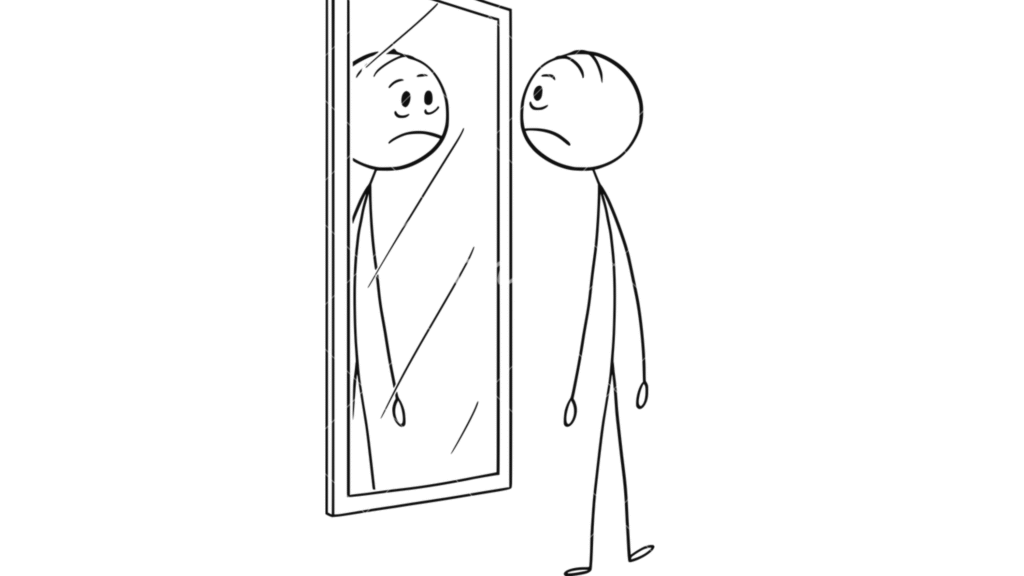We live in a world of highlight reels. Social media feeds flaunt picture-perfect vacations, promotions, and relationships. Meanwhile, coworkers, friends, and even strangers seem to achieve milestones faster, smarter, and “better” than us. But here’s the hard truth: comparison isn’t just a thief of joy—it’s a roadblock to self-discovery.
In this comprehensive guide, we’ll unpack why comparison harms your mental health, how societal systems fuel this habit, and actionable ways to reclaim your narrative. By the end, you’ll have a toolkit to silence external noise and thrive on your terms.
Why We Compare Ourselves to Others: The Science of Social Comparison
The Evolutionary Roots of Comparison
Biologically, humans compare to assess safety and status. Early humans relied on group acceptance for survival. However, modern society has warped this instinct into a toxic cycle of measuring self-worth through others’ achievements.
A 2022 study in Nature Human Behaviour found that frequent social media users experience a 37% increase in envy and dissatisfaction (source). This “comparison trap” activates the brain’s pain centers, similar to physical injury.
The Two Types of Social Comparison
- Upward Comparison: Comparing yourself to someone “better” (e.g., a CEO, influencer).
- Result: Feelings of inadequacy, imposter syndrome.
- Downward Comparison: Comparing yourself to someone “worse” (e.g., to feel superior).
- Result: Temporary ego boost, but reinforces judgmental thinking.
Neither benefits long-term growth.
The Hidden Costs of Constant Comparison
1. Erodes Self-Trust
When you prioritize others’ metrics of success, you silence your intuition. Example: Choosing a career path to impress peers instead of pursuing your passion.
2. Fuels Perfectionism
Comparison creates unrealistic standards. A 2021 study linked perfectionism to burnout, anxiety, and depression (American Psychological Association).
3. Stifles Creativity
Mimicking others’ paths limits innovation. Think of Thomas Edison, who famously said, “Hell, there are no rules here—we’re trying to accomplish something.”
4. Damages Relationships
Envy and resentment strain connections. Instead of celebrating others, comparison breeds silent competition.
How to Stop Comparing Yourself to Others: 10 Science-Backed Strategies

Step 1: Audit Your Social Media
- Unfollow accounts that trigger envy (even if they’re friends or family).
- Follow inspiring, relatable voices (e.g., @TheLatestKate for body positivity).
- Use app blockers like StayFocusd to limit scrolling.
Pro Tip: Ask, “Does this content inspire or invalidate me?”
Step 2: Redefine Success on Your Terms
Most societal definitions of success (wealth, status, appearance) are shallow. Instead, ask:
- What legacy do I want to leave?
- What activities make me lose track of time?
- Who do I admire, and why? (Hint: Focus on their values, not their accolades.)
Example: Instead of “I want a million followers,” try “I want to create art that comforts others.”
Step 3: Practice Radical Gratitude
Gratitude isn’t just a journaling exercise—it’s a mindset shift. Try:
- Morning affirmations: “I’m grateful for my resilience and curiosity.”
- Verbal gratitude: Thank someone daily, even for small acts.
- Gratitude walks: Observe nature, architecture, or community during walks.
Science Says: A 2019 Harvard Study found gratitude reduces materialism and enhances life satisfaction.
Step 4: Track Personal Milestones
Create a “Growth Timeline” to visualize progress:
- Week 1: Meditated for 5 minutes daily.
- Month 3: Published first blog post.
- Year 1: Negotiated a salary raise.
Tool Suggestion: Use apps like Notion or a physical vision board.
Step 5: Reframe Setbacks as Feedback
Mistakes are data, not destiny. When facing failure, ask:
- What did I learn?
- How can I adjust my approach?
- Who can support me?
Case Study: Sara Blakely, founder of Spanx, credits her father’s question—“What did you fail at this week?”—for normalizing setbacks.
Step 6: Cultivate a “Growth Circle”
Surround yourself with people who:
- Celebrate your wins without comparison.
- Offer constructive feedback, not criticism.
- Share diverse perspectives.
Action: Join communities like Meetup groups or online forums aligned with your interests.
Step 7: Embrace “Enoughness”
Society profits from convincing you you’re inadequate. Combat this by:
- Decluttering: Remove physical/mental clutter (e.g., toxic relationships).
- Mindful consumption: Avoid ads/marketing that sell insecurity.
- Affirmations: “I am enough, exactly as I am.”
Step 8: Study Role Models Holistically
Instead of idolizing others’ success, research their journeys. For example:
- Oprah Winfrey was fired from her first TV job.
- Steve Jobs dropped out of college and built Apple in a garage.
Key Takeaway: Everyone faces obstacles—comparison often ignores the struggle.
Step 9: Volunteer or Mentor Others
Helping others shifts focus from “me vs. them” to collective growth. Studies show volunteering reduces stress and increases empathy (Mayo Clinic).
Step 10: Celebrate “Micro-Wins” Daily
Acknowledge small victories to build confidence:
- Finished a workout? Celebrate!
- Cooked a healthy meal? Celebrate!
- Said “no” to a draining request? Celebrate!
Pro Tip: Keep a “Win Jar” where you jot down achievements and read them monthly.
The Power of Authenticity: Stories of Triumph Without Comparison
Case Study 1: Lizzo’s Body Positivity Revolution
Lizzo ignored beauty standards to champion self-love. Her message: “If I’m shining, everybody gonna shine.”
Case Study 2: Einstein’s Nonconformity
Einstein’s teachers labeled him a “lazy dreamer.” He later said, “Imagination is more important than knowledge.”
FAQ: Stop Comparing Yourself to Others
Q: How do I handle family members who compare me to others?
A: Set boundaries kindly: “I’m focusing on my own path right now.” Redirect conversations to shared interests.
Q: Can comparison ever be positive?
A: Yes—if it’s inspirational (e.g., “They achieved X; what can I learn?”) vs. destructive (“Why can’t I be like them?”).
Q: How long does it take to break the comparison habit?
A: It’s a lifelong practice, but mindfulness reduces frequency. Start with 30-day challenges (e.g., a social media detox).
Final Thoughts: Your Journey Is a Masterpiece in Progress
Comparing yourself to others is like criticizing a rose for not being a sunflower. Both have beauty, purpose, and unique seasons of blooming. By focusing on your growth, you’ll unlock creativity, resilience, and joy that no external metric can quantify.
